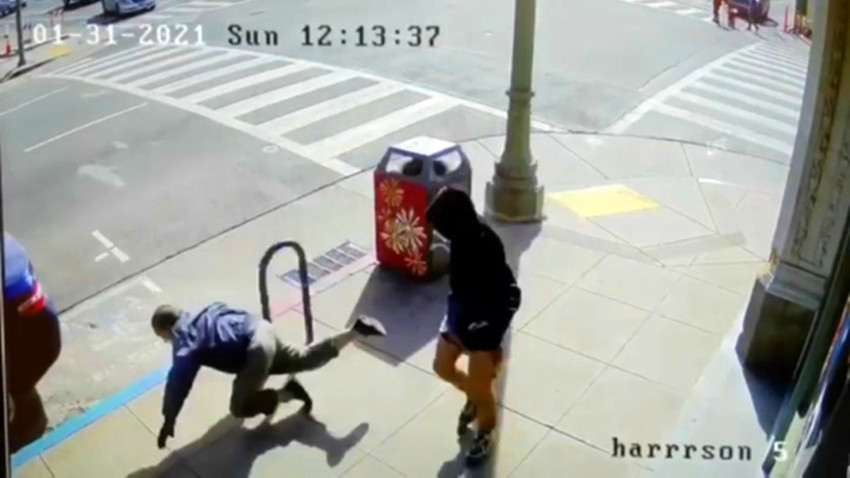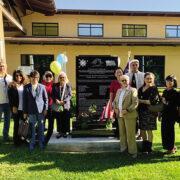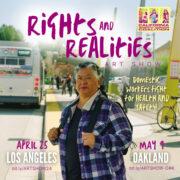
White House responds to the attacks as AAPI communities share outrage over ‘hate crimes’
FOLLOWING a disturbing slew of violent assaults on elderly Asian residents in the Bay Area, Oakland police announced on Monday, Feb. 8 that it had arrested and charged a suspect for a savage assault on a 91-year-old Asian man in Chinatown.
Police said they believe that Yahya Muslim (unclear whether the suspect is of Muslim faith) is also behind the attacks of a 60-year-old Asian man and a 55-year-old Asian woman on the same day — Sunday, Jan. 31 — and neighborhood in which the 91-year-old was attacked.
The names of the victims have not been released.
Surveillance video footage of the 91-year-old victim’s assault, which went viral on social media last week, showed the victim walking along the sidewalk in broad daylight when the suspect — who police allege is 28-year-old Muslim — follows him and shoves him to the ground.
“We have charged him with three counts of assault that involve three separate victims,” Alameda County District Attorney Nancy O’Malley said at a press briefing alongside Oakland’s new police chief LeRonne Armstrong.
The suspect has also been charged with multiple counts of elder abuse that police say are related to the Chinatown attacks. He is currently in police custody at Santa Rida Jail in Dublin, California on $85,000 bail.
“We recognize some in our community come to Chinatown to target people. We know they target our elderly. They come because they believe our community won’t report it to the police,” Armstrong said.
He added, “We’re sending a message to those that commit crime in this city, that we will pursue you and we will arrest you and it’s not acceptable for things like this to happen in our community.”
It’s still unclear whether the suspect’s crimes were race-related, but the attacks strike a familiar chord: the disturbing trend of targeting the AAPI community — especially the elderly.
“It’s not unique to Chinatown or to the Asian community, the increase in crime we’ve seen across the city and across the country, but we have seen in the last several weeks and month a very specific increase in crimes committed against Asians,” O’Malley said on Monday.
The Chinatown Chamber of Commerce, which first released the footage of the 91-year-old’s assault, told a local station that it has accumulated more than 20 reports and videos of Chinatown businesses getting robbed and owners and customers assaulted.
In San Francisco, Vicha Ratanapakdee, an 84-year-old from Thailand, died after being attacked on a morning walk on Jan. 28, the San Francisco District Attorney’s office said.
As the Asian Journal has covered throughout the coronavirus pandemic, harassment against the AAPI community has dramatically increased over the last year.
The dangerous conflation between the vast Asian and Pacific Islander community and COVID-19, which was first made known in China, has resulted in increased reports of verbal and physical assault, cyberbullying and other forms of discrimination.
In the wake of the Jan. 31 attacks, dozens of AAPI advocacy groups are calling for cross-cultural alliances to end violence against all targeted communities, especially in the Bay Area and other ethnically diverse regions of the country.
The Stop AAPI Hate initiative — started by the Asian Pacific Policy and Planning Council (A3PCON), Chinese for Affirmative Action and the Asian American Studies Department of SF State University — logged 2,808 reported hate incidents against the AAPI community in 2020, and more than 700 of those reports came from the Bay Area.
Although it is unclear whether or not some of these attacks were racially motivated, “they have profound impacts on our Asian communities across the country and internationally,” a coalition of more than 40 AAPI groups said in a joint statement on Tuesday, Feb. 9.
“Our elderly community members, along with their families, are fearful of being in public alone, simply going for a walk, and living their daily lives. And survivors of interpersonal violence and their families have historically not received enough culturally-competent and language-accessible support across government systems,” the statement read.
With Lunar New Year beginning later this week, the coalition advised the public to be vigilant and protect the safety of the AAPI community’s most “vulnerable” members.
It also called upon local and state leadership to invest in “culturally-relevant and trauma-informed” initiatives and programs to mitigate the violence against AAPI elders.
At a press conference on Tuesday, coalition members outlined a number of broad goals like expanding counseling and legal services for AAPIs of all language abilities, creating more intervention-based programs to end violence and “cross-community education and healing” in AAPI and Black communities, two communities that have historically been pitted against each other.
Before Oakland police announced that it had arrested and charged the suspect in the Jan. 31 Chinatown assaults, actors Daniel Wu and Daniel Dae Kim teamed up to offer a $25,000 reward for information that would lead to the arrest of the assailant.
“We’re being smashed in as a one-two punch. There’s low-level petty crime that’s happening to our community. We’re being targeted as easy targets,” Wu said on CNN last week. “But at a bigger scale, racist rhetoric from the pandemic has targeted us as being ‘the reason for coronavirus,’ and so Asians across the board have been targeted by racial slurs, being attacked, being pushed around, being spat on.”
President Joe Biden, who signed an executive order taking action on anti-Asian racism and discrimination amid the pandemic, has yet to comment on the recent attacks, according to White House Press Secretary Jen Psaki.
“I’m not aware that he’s seen the videos, but he is concerned about the discrimination against the Asian American community, which is why he signed the executive order and why he’s been outspoken in making clear
that attacks, verbal attacks, any attacks of any form are unacceptable and we need to work together to address them,” Psaki said on Monday. (Klarize Medenilla/AJPress)






